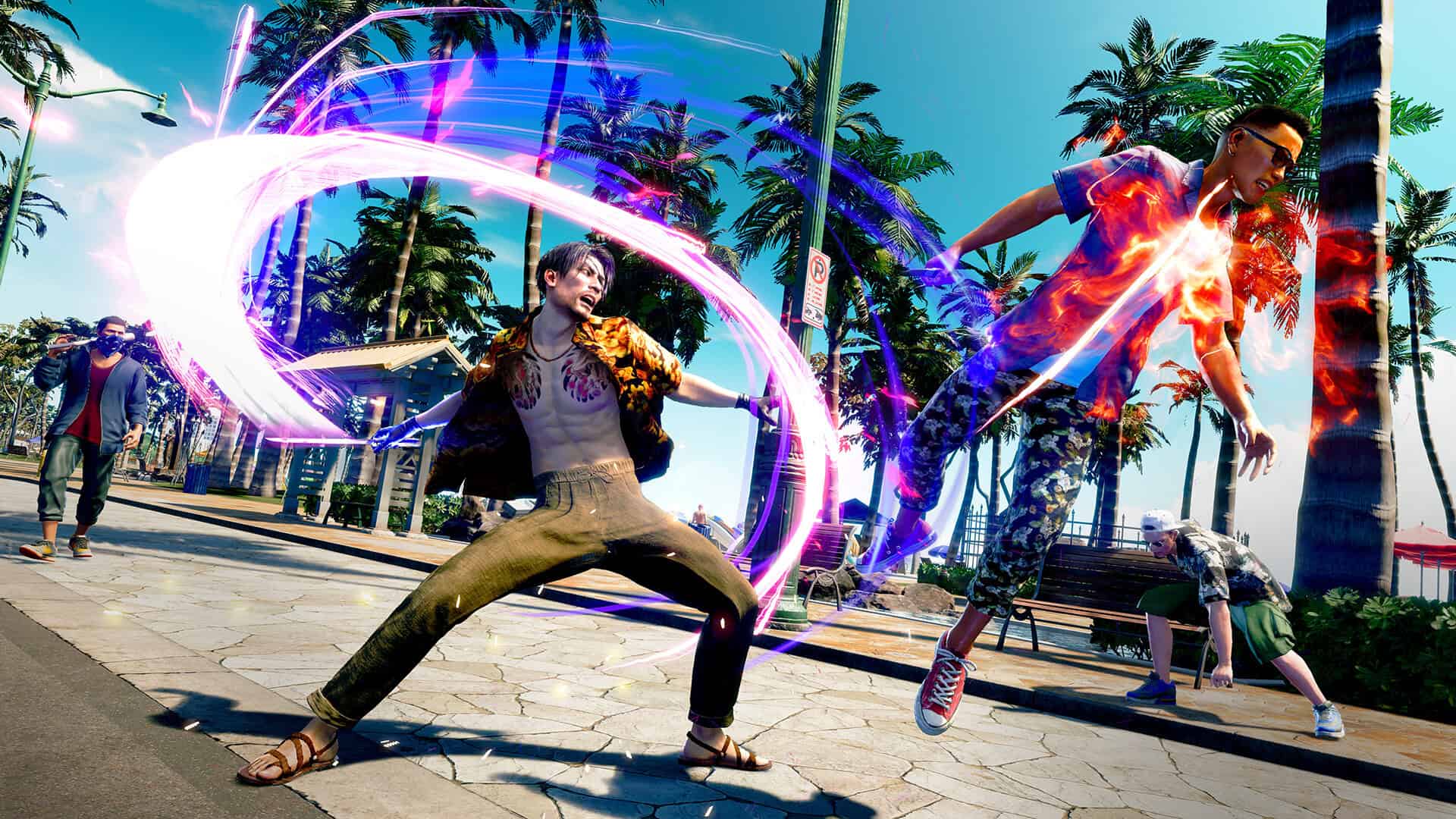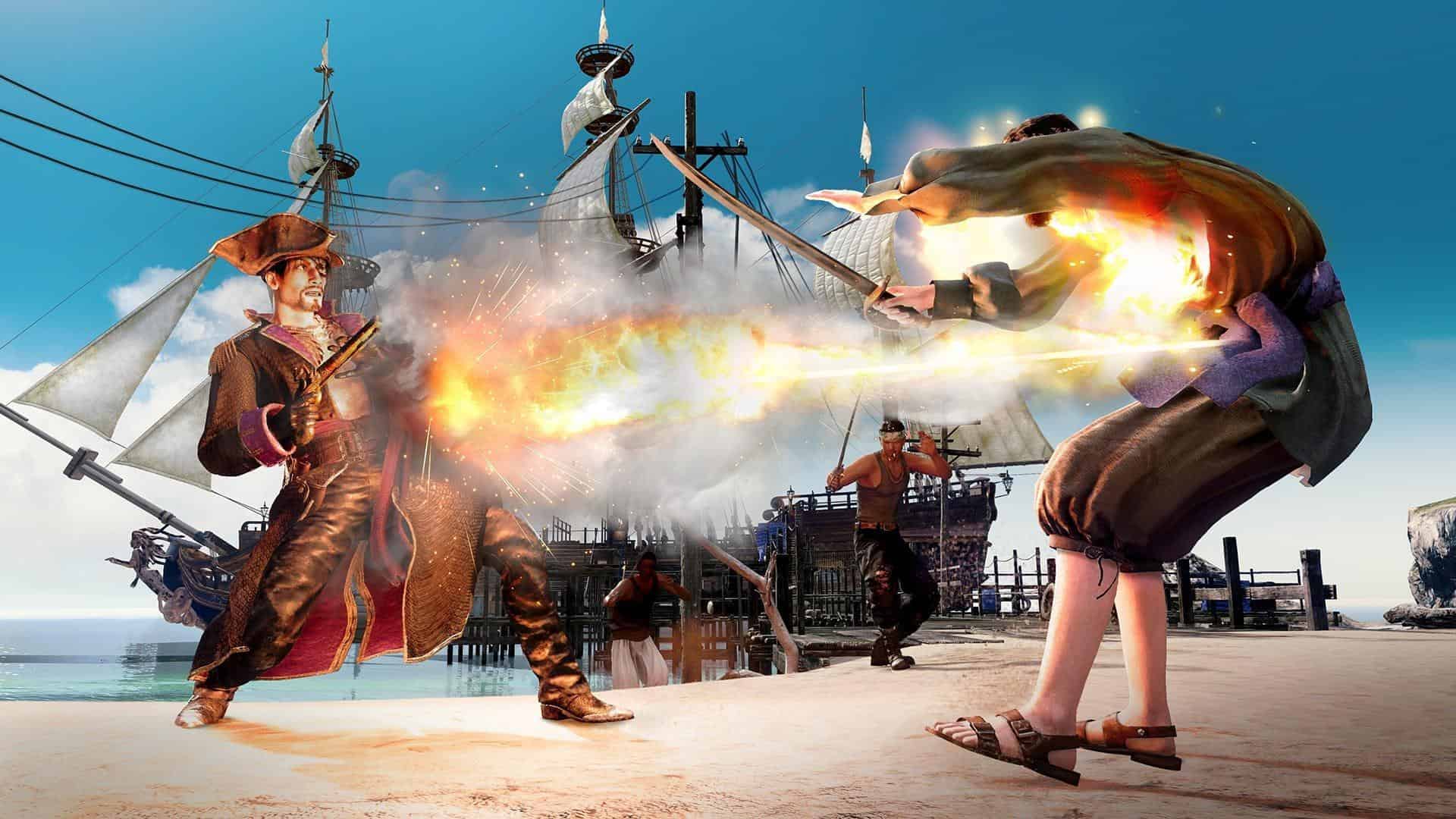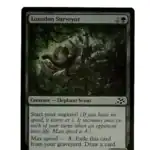Like a Dragon: Pirate Yakuza in Hawaii continues to sail forward as one of the most vibrant and unexpected entries in Ryu Ga Gotoku Studio’s long-running franchise. Released in February 2025, this spin-off puts the legendary Goro Majima back in the spotlight—only this time, he’s battling pirates, commanding ships, and swinging cutlasses in a tropical Hawaiian setting. Since launch, the game has steadily received content updates, bug fixes, and now—exciting crossover DLC that’s turning heads in the community.
April Crossover DLC: Dave the Diver Meets Yakuza
In an unexpected but strangely perfect crossover, April 2025 introduces a limited-time DLC that brings Dave the Diver together with the Yakuza universe. Ichiban Kasuga, the breakout hero from Yakuza: Like a Dragon, dives into the Blue Hole as a playable character, complete with over-the-top animations and minigames tailored to his personality. The DLC features new cutscenes, crossover-themed items, and a humorous story arc that blends Dave’s oceanic charm with Yakuza’s dramatic flair. Fans of both franchises have praised the collaboration for maintaining each character’s identity while having fun with the absurdity.

March Update: Making Side Quests More Accessible
One of the major criticisms of Pirate Yakuza in Hawaii at launch was a particularly punishing side quest that many players found frustratingly difficult, even on lower difficulty settings. In March 2025, Ryu Ga Gotoku Studio pushed out a patch that dramatically rebalanced this quest. Enemy stats were adjusted, hint systems were improved, and checkpoints were added to reduce repetition. This change has been widely praised as an example of the studio’s responsiveness to player feedback—something longtime fans have come to appreciate over the years.
Gameplay Overview: Back to Beat ’Em Up Roots
While Yakuza: Like a Dragon (Yakuza 7) famously switched to turn-based combat, Pirate Yakuza in Hawaii marks a return to the franchise’s brawler roots. Majima utilizes two distinct fighting styles: the acrobatic and chaotic “Mad Dog” style and the more flamboyant, pirate-themed “Sea Dog” stance, complete with pistols and dual cutlasses. This shift in gameplay has been received positively by fans nostalgic for the earlier entries, but it also introduces fresh mechanics like naval battles, ship upgrades, and island exploration to give the series a new kind of energy.

Setting and Story: A Fever Dream in Paradise
The story picks up six months after Like a Dragon: Infinite Wealth. Majima washes up on a mysterious island near Hawaii with no memory of who he is. As he regains his memories, he finds himself caught in a conflict between modern-day pirates, a hidden treasure, and echoes of his past life. The writing balances absurd humor with emotional moments, a signature blend the franchise is known for. Players also get to explore a fully realized tropical map filled with karaoke bars, arcade games, fishing spots, and side quests that are equal parts touching and ridiculous.
Technical Improvements and Post-Launch Support
The April 15 patch (version 1.14) addressed a number of lingering bugs, including UI glitches, inconsistent controller inputs in the SEGA Racing Classic 2 minigame, and issues with Intel XeSS Frame Generation on PC. These regular updates signal that RGG Studio is committed to polishing the experience for all platforms, including PS4, PS5, Xbox One, Xbox Series X|S, and PC.
Reception and Fan Feedback
While some critics have pointed out that Pirate Yakuza in Hawaii lacks the emotional weight of the mainline entries, most agree that it’s one of the most fun and unpredictable games in the franchise. It embraces its status as a spin-off, leaning into the absurdity and letting Majima finally take the lead in a full game—a dream come true for many fans. The combat, minigames, and sheer personality of the title make it a standout entry in a series known for constant reinvention.
With meaningful updates, a wildly entertaining crossover, and a healthy dose of Yakuza-style chaos, Like a Dragon: Pirate Yakuza in Hawaii proves that the franchise still has plenty of surprises left. Whether you’re a longtime fan or diving in for the first time, now is the perfect moment to hoist anchor and see what Majima’s tropical misadventure has in store.
Overview of Yakuza: Like A Dragon
Yakuza 7: Like a Dragon represents a bold new direction for the long-running series, introducing fresh characters, gameplay mechanics, and settings while maintaining the franchise’s signature storytelling style.
Plot and Setting
Yakuza 7 introduces players to Ichiban Kasuga, a low-ranking yakuza member eager to prove his worth. Unlike previous games that featured Kazuma Kiryu as the protagonist, this entry builds its narrative around Ichiban’s journey. After being betrayed and left for dead, Ichiban embarks on a quest for answers and redemption.
The game moves beyond the familiar streets of Kamurocho to the vibrant district of Yokohama, Japan. This new setting provides a fresh backdrop with unique neighborhoods, businesses, and underworld factions to explore.
Ichiban’s personality differs significantly from Kiryu’s stoic nature. He’s more expressive and imaginative, which plays into the game’s new RPG mechanics and overall tone. His backstory and development form the emotional core of the narrative.
Gameplay Evolution
Yakuza 7 represents the biggest gameplay shift in the series’ history, transitioning from beat-’em-up action to a turn-based RPG combat system. This dramatic change was initially met with skepticism but has earned praise for its depth and accessibility.
Players command a party of characters with unique abilities and job classes rather than fighting solo. These jobs include quirky options like “Host,” “Musician,” and “Chef,” each with distinctive skills and attributes.
The RPG elements extend beyond combat into character progression, equipment management, and relationship building. Players can develop bonds with party members to unlock special team attacks and story content.
Side activities remain abundant, including classic Yakuza mini-games and new additions. Business management, kart racing, and vocational training provide breaks from the main storyline.
Graphic and Audio Enhancements
Yakuza 7 features improved visual fidelity over its predecessors with more detailed character models and environments. Facial animations convey subtle emotions, enhancing storytelling moments throughout the game.
The city of Yokohama is rendered with impressive attention to detail. Street signs, storefronts, and pedestrians create a living urban environment that changes from day to night.
Combat animations are particularly noteworthy, with flashy special moves and over-the-top sequences that reflect Ichiban’s vivid imagination. These visual flourishes help the turn-based battles feel dynamic and engaging.
The game features full voice acting in Japanese with subtitle options. The soundtrack combines traditional Japanese instruments with modern compositions, creating an atmospheric backdrop for both dramatic and comedic moments.
‘Like a Dragon’ Series Continuity
The ‘Like a Dragon’ series represents a significant evolution for the franchise formerly known internationally as ‘Yakuza.’ This rebranding reflects both narrative and gameplay shifts while maintaining connections to its rich universe.
Connection to ‘Yakuza’ and ‘Judgment’ Series
‘Yakuza: Like a Dragon’ (known as Ryu ga Gotoku 8 in Japan) marked a pivotal transition for the franchise. While maintaining ties to the original Yakuza storyline, it introduced new protagonist Ichiban Kasuga, effectively creating a fresh starting point for players.
The game exists in the same universe as both the Yakuza titles and the Judgment spinoff series. Kazuma Kiryu, the iconic lead of the original Yakuza games, makes appearances connecting the narrative threads across generations.
RGG Studio has carefully crafted this shared universe where events from Judgment and Lost Judgment exist alongside the main series. This interconnectivity allows longtime fans to appreciate callbacks while welcoming newcomers.
Impact on Future Titles
According to recent statements from series lead Yokoyama, 2024 promises a “big announcement” following the release of “Like a Dragon: Infinite Wealth.” This suggests RGG Studio continues expanding their narrative universe.
The shift to turn-based RPG combat in Yakuza: Like a Dragon represented a bold departure from the action-brawler roots. This gameplay evolution appears to be continuing in newer titles, though with refinements based on player feedback.
Some fans have expressed concern that “Like a Dragon: Pirate Yakuza in Hawaii” may carry forward certain issues from previous games. However, this demonstrates how RGG Studio constantly iterates on their formula.
SEGA’s commitment to the franchise remains strong, with regular releases maintaining the intricate storylines and character development that fans expect from the series.
Development and Production Insights
The technical expertise behind Yakuza 7 (Like a Dragon) stems from a team of dedicated developers at Ryu Ga Gotoku Studio who balance creative innovation with technical challenges. Their approach combines traditional series elements with fresh gameplay mechanics.
Creative Process
Masayoshi Yokoyama, chief producer and writer at RGG Studio, played a pivotal role in creating the new protagonist Kasuga Ichiban. This marked a significant shift from the long-standing character Kiryu Kazuma. The team wanted to maintain the series’ essence while introducing fresh storytelling opportunities.
Technical director Yutaka Ito believes new programmers at RGG Studio are fortunate to work on the Yakuza series. The studio’s prolific output provides valuable experience for developers.
The creative team focused on building a character-driven narrative that could support the new turn-based RPG combat system. This represented a major departure from the action-based gameplay of previous titles.
Challenges and Solutions
The transition to a turn-based combat system presented significant technical hurdles. Developers needed to maintain the series’ signature intensity while implementing completely new gameplay mechanics.
The team had to balance appealing to longtime fans while attracting new players. This required careful design decisions that respected the series’ history while evolving its formula.
RGG Studio implemented extensive testing protocols to ensure the new systems felt natural within the Yakuza universe. They refined the job system and character progression through multiple iterations.
Technical constraints meant optimizing the game for both current and previous generation hardware. This required creative solutions to maintain visual quality while ensuring stable performance.
Release and Reception
Yakuza 7, also known as “Like a Dragon” in Western markets, marked a significant shift for the franchise with its turn-based RPG gameplay. The game’s release strategy and reception demonstrated SEGA’s commitment to expanding the series globally.
Initial Launch and Market Performance
Yakuza 7 first launched in Japan on January 16, 2020, exclusively for the PlayStation 4. The international release followed later that year on November 10, 2020, with an expanded platform reach that included Xbox Series X/S, Windows, and PS4.
The game performed well commercially, exceeding SEGA’s sales expectations in both Japanese and Western markets. This success validated the developer’s decision to pivot from the traditional action-based combat to a turn-based RPG system.
In early 2021, SEGA reported that digital sales for Like a Dragon were particularly strong, indicating growing international interest in the franchise. The game’s successful performance helped secure the future of the series’ new direction.
Critical and Community Response
Like a Dragon received positive reviews from both critics and fans, with praise focused on its storytelling, character development, and successful implementation of RPG elements. Most reviewers awarded the game scores between 8/10 and 9/10.
Critics particularly highlighted protagonist Ichiban Kasuga’s infectious personality and the game’s ability to balance serious dramatic themes with its trademark quirky humor. The turn-based combat system, while controversial before release, was generally well-received for its depth and creativity.
Some longtime fans initially resisted the gameplay changes, but many came to appreciate the fresh direction. The game’s side activities, including business management and relationship building, were praised for their depth and integration with the RPG systems.
Despite some criticism about pacing issues and occasional grinding, the game’s strong narrative and characterization helped cement its place as a worthy entry in the Yakuza series.
Content Updates and Expansions
Like a Dragon: Pirate Yakuza in Hawaii continues RGG Studio’s tradition of supporting their games well after launch, with both paid DLC and free patches improving the experience for players.
DLC Additions
The DLC roadmap for Like a Dragon: Pirate Yakuza in Hawaii outlines several expansion packs scheduled throughout 2025. Players can look forward to new costumes that allow for additional character customization options.
While specific details about all upcoming content remain limited, Sega has confirmed that the expansions will introduce new story elements that build upon the Hawaiian setting. These additions aim to extend the gameplay experience beyond the base game.
The first DLC pack is expected to arrive in late April 2025, with subsequent releases planned quarterly. Previous Yakuza titles typically received a mix of cosmetic items, mini-games, and story expansions, suggesting a similar pattern for this latest entry.
Post-Release Patches
RGG Studio has been actively addressing technical issues through regular updates. The recently released Patch 1.13 fixed a critical problem introduced in Patch 1.12 that caused lower frame rates and extended loading times.
The March 2025 update made one of the game’s more challenging side quests easier to complete, responding to player feedback about difficulty spikes. This demonstrates the developer’s commitment to balancing gameplay based on community input.
Technical improvements continue to be a focus, with each patch optimizing performance across all platforms. These updates are free for all players and automatically download when connecting to online services.
Sega has maintained a transparent approach to communicating these changes through detailed patch notes published on their official website and social media channels.
Community and Culture Impact
The Like a Dragon series (formerly known as Yakuza) has created a vibrant community that extends far beyond the games themselves. Ichiban Kasuga’s introduction as the new protagonist in Yakuza 7 has sparked renewed interest in the franchise across various platforms and mediums.
Fan Projects and Creations
Fans of Yakuza 7 have developed numerous creative projects that showcase their dedication to the series. Cosplay of Ichiban Kasuga has become increasingly popular at gaming conventions worldwide, with his distinctive perm and red suit becoming iconic within gaming culture.
Amateur developers have created mods that expand gameplay possibilities or add humorous elements to the game. One notable project is “Dragon Kart Extended,” which builds upon the mini-game with additional tracks and characters.
Fan art communities on platforms like Discord and Reddit have flourished, with artists producing everything from comic strips to detailed paintings depicting the game’s colorful cast. These creative works often highlight the emotional journey of Ichiban and his companions through Yokohama.
Influence on Pop Culture
The Yakuza series has significantly impacted pop culture, especially following Yakuza 7’s successful reinvention of the franchise with turn-based RPG mechanics. References to the game have appeared in television shows, music videos, and online content across Japan and internationally.
The distinctive storytelling approach of Yakuza 7, blending serious crime drama with absurdist humor, has influenced other game developers. Several new titles have adopted similar tonal shifts in their narratives, acknowledging the franchise’s influence.
Tourism to locations in Japan featured in the games has increased, with fans seeking out real-world counterparts to in-game locations. Kamurocho’s real-life inspiration, Kabukicho in Shinjuku, has become a destination for international gamers wanting to experience the world of Yakuza firsthand.
The series’ distinctive karaoke mini-games have sparked viral social media trends, with “Baka Mitai” and other songs becoming recognizable even among those unfamiliar with the games themselves.
Frequently Asked Questions
Yakuza: Like a Dragon (Yakuza 7) has generated many questions from fans about gameplay features, character relationships, and future content. Players are particularly interested in romance options, stat improvements, and completion time.
What are the new features in the latest update for Yakuza: Like a Dragon?
The latest update for Yakuza: Like a Dragon has introduced several quality-of-life improvements to enhance the gameplay experience. Combat balancing adjustments have made fights more dynamic, especially for higher difficulty levels.
New side quests have been added in Ijincho, giving players more opportunities to earn experience and develop bonds with party members. The update also includes additional customization options for the Ichiban Confections management mini-game.
Performance improvements have fixed previous frame rate issues during crowded street scenes and intense battle sequences.
How does the romance subplot with Ririka unfold in Yakuza 7?
The romance subplot with Ririka develops gradually through Ichiban’s interactions at the hostess club. Players need to visit her multiple times and choose the correct dialogue options to increase her affection level.
As the relationship progresses, special scenes unlock that reveal more about Ririka’s background and personal struggles. The subplot ties into themes of loyalty and trust that echo throughout the main storyline.
Unlike traditional romance options in other games, this relationship focuses more on emotional connection than explicit romantic outcomes.
What are the best strategies to enhance character personality stats in Yakuza: Like a Dragon?
The most efficient way to boost personality stats is through reading books purchased at bookstores throughout Ijincho. Each book increases specific stats like Charisma, Intelligence, or Kindness.
Visiting the Survive Bar regularly unlocks personality-enhancing conversations. Players should also complete Part-Time Hero quests that often reward personality stat increases upon completion.
Certain mini-games consistently improve specific stats – mahjong increases Intelligence, while karaoke enhances Charisma. Balancing these activities alongside main story progression yields the best results.
Can players form a romantic relationship with characters in Yakuza 7, and if so, how?
Yakuza: Like a Dragon offers limited romantic interactions rather than full relationship systems. Players can develop connections with certain characters through substories and specific game events.
The most notable romantic option involves interactions with hostesses at the cabaret clubs, where players can increase intimacy through conversation and gifts. These relationships primarily serve as side content rather than affecting the main storyline.
Dating mechanics in Yakuza 7 are more restrained compared to other RPGs, reflecting the game’s focus on friendship and found family over romantic pursuits.
What is the anticipated release date for the sequel to Yakuza: Like a Dragon?
No official release date has been announced for a direct sequel to Yakuza: Like a Dragon. The series has continued with “Like a Dragon: Infinite Wealth” and “Like a Dragon: Pirate Yakuza in Hawaii.”
RGG Studio appears to be expanding the “Like a Dragon” universe with these newer titles rather than developing a traditional numbered sequel. The focus seems to be on exploring different settings while continuing Ichiban’s story.
Fans should follow official SEGA announcements for accurate information about upcoming titles in the franchise.
How much time is typically required to complete the main storyline of Yakuza: Like a Dragon?
The main storyline of Yakuza: Like a Dragon takes approximately 45-50 hours to complete when focusing primarily on story missions. This estimate increases dramatically when engaging with side content.
Players who explore substories, manage businesses, and participate in mini-games can expect their playtime to exceed 80-100 hours. The turn-based combat system also tends to make battles longer than in previous Yakuza titles.
Completionists aiming for all achievements should plan for at least 120 hours of gameplay to experience everything Ijincho has to offer.






